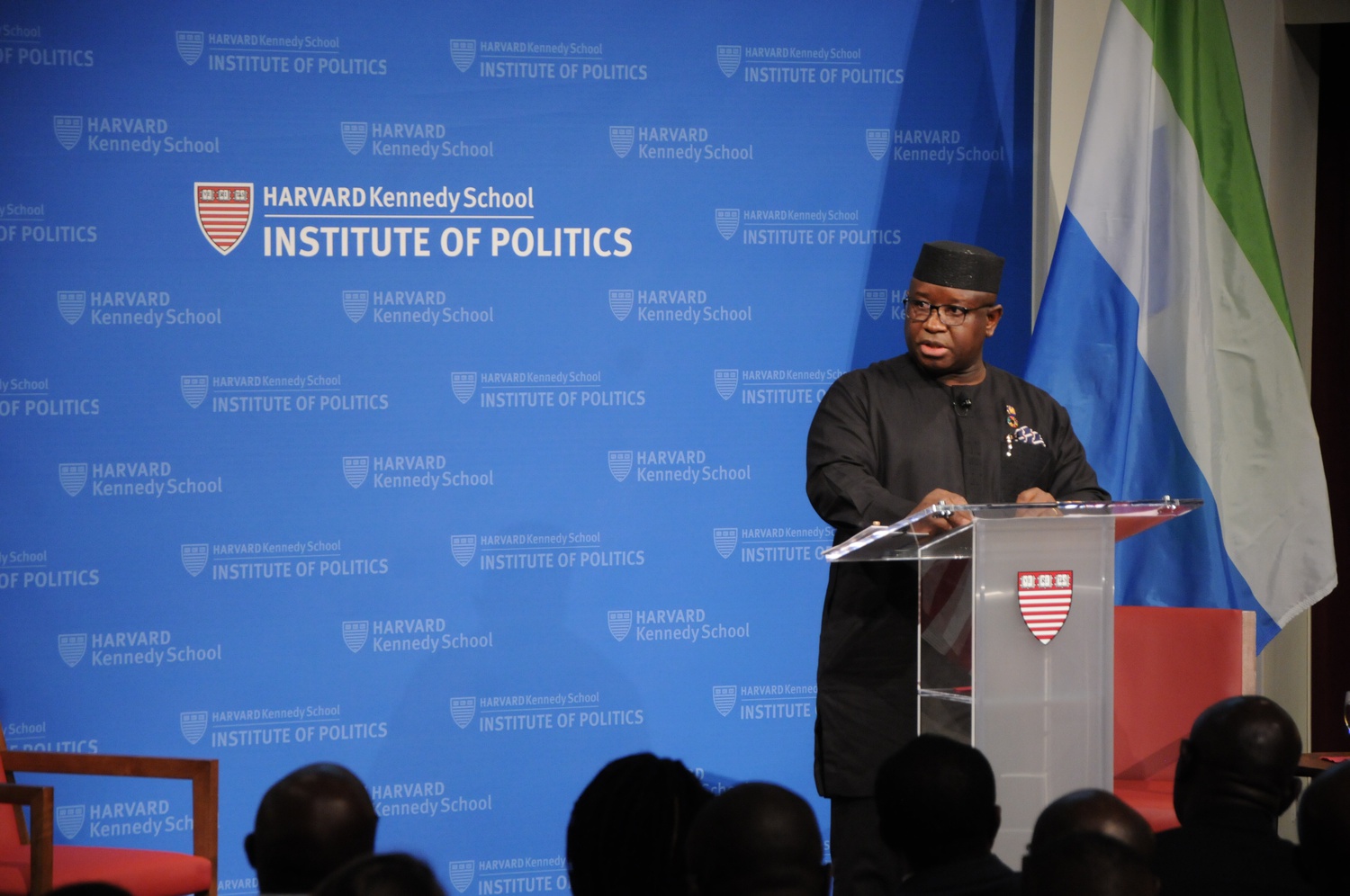
News
Cambridge Residents Slam Council Proposal to Delay Bike Lane Construction

News
‘Gender-Affirming Slay Fest’: Harvard College QSA Hosts Annual Queer Prom

News
‘Not Being Nerds’: Harvard Students Dance to Tinashe at Yardfest

News
Wrongful Death Trial Against CAMHS Employee Over 2015 Student Suicide To Begin Tuesday

News
Cornel West, Harvard Affiliates Call for University to Divest from ‘Israeli Apartheid’ at Rally
President of Sierra Leone Julius Maada Bio Speaks at Harvard Institute of Politics

President of Sierra Leone Julius Maada Bio outlined the current state of his country and pushed for greater representation of African nations in international affairs at the Harvard Kennedy School Institute of Politics Thursday.
Bio opened his speech by lambasting Western misrepresentations of Sierra Leone – misrepresentations, he said, that characterize the West African nation as a “failed state,” “playground for international warlords,” or solely “a site of activity for multiple international charities.”
“Sierra Leone continues to pay a hefty price for the failure and refusal of huge factions of the West to shake off their wrong perceptions of Sierra Leone,” Bio said.
He highlighted Sierra Leone’s recent success as a practicing democratic state. Bio is the third president since the restoration of the civilian government in the 1990s, after a civil war fueled by the diamond trade devastated the nation.
“I want to talk about my Sierra Leone, where there has been democratic elections, and three peaceful and seamless transfers of power,” Bio said.
Bio also addressed issues of concern in his country, including rising rates of sexual violence. Sexual violence reports more than doubled in Sierra Leone from 2017 to 2018, with a third of victims identified as minors. At the IOP, Bio explained the implications of his Feb. 8 decision to declare rape and sexual violence a national emergency.
“We can allocate resources to dealing with the emergency while reviewing all applicable laws on women’s rights and eliminating all forms of gender-based violence,” Bio said.
Bio called for increased representation within the United Nations, pointing to Sierra Leone's growing involvement in peacekeeping operations. No African nations occupy a permanent position on the United Nations Security Council — a reality, Bio said, that must change.
“The single objective is to gain Africa’s rightful place in the global governance system,” Bio said. “Africa’s non-representation and underrepresentation in the permanent and nonpermanent categories of the Security Council is grossly unfair and unjust.”
Bio asserted that Africa’s United Nations representation is not sufficient considering the size of the continent.
“Africa is the world’s second largest and second most populous continent, and its 1.2 billion people collectively deserve representation in the permanent category of the premier organ of the United Nations,” Bio said.
Bio concluded his speech by reiterating his commitment to democracy.
“Our vision of the new Sierra Leone is one that is developed on the principles of democratic governance and accountability,” Bio said. “Our mission is to build a Sierra Leone whose reputation is hard to destroy.”
— Staff writer Jania J. Tumey can be reached at jania.tumey@thecrimson.com.
Want to keep up with breaking news? Subscribe to our email newsletter.
